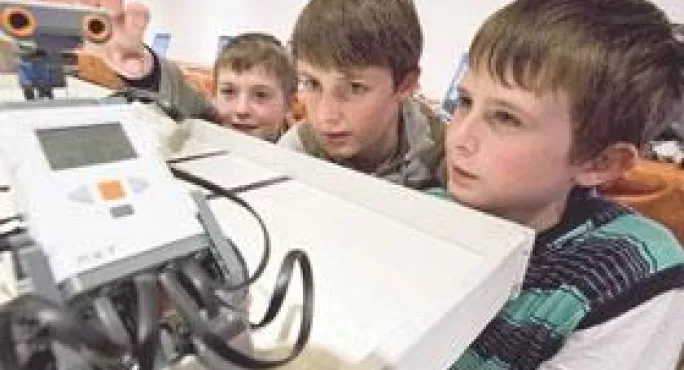pound;1,000 a year not enough

The fact that some school science departments have to get by on pound;1,000 a year is “just not sustainable”, Anne Glover, the Government’s chief adviser on science, said last week.
In a series of critical observations on the state of science in schools, Professor Glover admitted candidly before an audience at the Edinburgh International Science Festival that school pupils were not attracted by science. She found it “truly horrifying” that young people would rather be celebrities than scientists.
Along with other eminent figures at the festival event, including TV “celebrity” scientist Heinz Wolff, she said practical work was essential to engage pupils. Yet, Professor Glover commented: “The budget many science teachers have to deliver a full course in science is ridiculously low. I was shocked when I found out a budget for a year might be pound;1,000; that’s just not sustainable. What we want is the best teachers and the best resource.”
Some schools did not have the money to do experimental work, claimed Paul Thomson, headteacher of Jordanhill School in Glasgow, who was also speaking at the festival. It was not just local authority spending which had been hit: his school, which is directly funded by central government, also had its science budget cut.
“There is a mismatch between aspiration and the resource the Government is able to direct,” Mr Thomson concluded.
Coming in the wake of the SNP Government’s marketing campaign to turn secondary pupils on to science, and following the embarrassing performance of Scottish 10 and 14-year-olds in science compared with other countries, these comments will not come as good news.
The 2007 results from the Trends in International Mathematics and Science Study (Timss) placed our P5 pupils 22nd out of 36 countries in science, while S2 pupils were in 15th position out of 49 countries.
Underspending on school science has been a constant complaint since 2001, when Labour’s then education minister, Jack McConnell, unveiled an pound;18 million package for school science, including equipment. But the Association for Science Education Scotland estimated this would amount to pound;45,000 per secondary school, just for physics - “not even enough to bring their equipment up to scratch, let alone address the many competing priorities schools have to face.”
One principal physics teacher said at the time that his spending allocation had actually declined in the previous 20 years, from pound;1,340 in 1983-84 to pound;1,294 in 2001-02.
In a 2004 survey by the ASE, state and independent schools reported a 12 per cent decline in spending on science in real terms during the previous three years; in state schools, it was 15 per cent.
Responding to Professor Glover’s comments, a Scottish Government spokesperson maintained it was committed to developing a new approach to learning and teaching “with science and technology at its heart”, which provided opportunities for active and practical learning. A science summit would be held on May 5, focused on improving the teaching of science, he said.
Professor Glover acknowledged that A Curriculum for Excellence would give more time and space to teachers. But it was a “big ask”, she admitted, and teachers would need a “huge amount of support and collaboration”.
Dr Thomson underlined the importance of the quality of science teachers. A new department head had been appointed at Jordanhill 15 months ago and a third of S6 had opted to take Advanced Higher chemistry. This was the impact that someone with drive, ability and a love of their subject could have, he said.
Keep reading for just £1 per month
You've reached your limit of free articles this month. Subscribe for £1 per month for three months and get:
- Unlimited access to all Tes magazine content
- Exclusive subscriber-only stories
- Award-winning email newsletters



